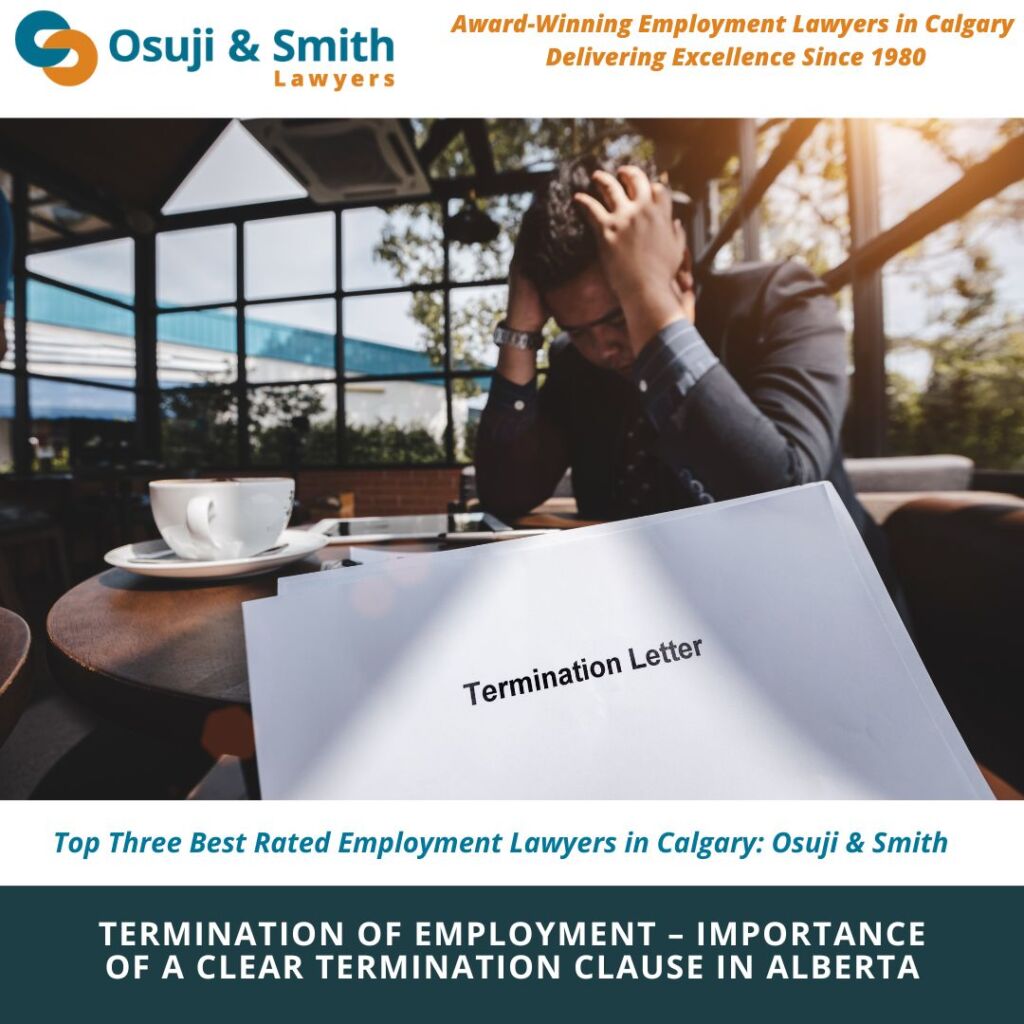TERMINATION OF EMPLOYMENT – IMPORTANCE OF A CLEAR TERMINATION CLAUSE IN ALBERTA
Where an employer terminates the employment of an employee without cause in Alberta, there are two possible notice period requirements that could apply. One is under the Alberta Employment Standards Code (the Code) and the other is under common law. Under the common law, the presumption is that a termination of employment can occur only on reasonable notice or if the employer wants the employee to cease working immediately, make a payment in lieu of reasonable notice to the employee.
In an employment contract, whilst an employer may attempt to limit or suggest that the applicable notice requirement upon termination is that under the Code, depending on the clarity of the wording of the termination clause in the employment contract, an employer upon termination, may still be required to give an employee reasonable notice or payment in lieu of reasonable notice under common law instead.

Under the Code, depending on the length of time that the employee has worked, the minimum notice the employer is required to give an employee varies, for example at least 1 week’s notice must be given where the employee has worked for 90 days but less than 1 year, at least 2 weeks’ notice if the employee has worked for the employer for 2 years or more but less than 4 years, etc.
For the notice period under the Code to apply exclusively, an employer must explicitly make this clear in the contract of employment in order to rebut the presumption of termination on reasonable notice under common law. Even though an employer might attempt to limit the notice period to that which applies under the Code, there are instances where the court has held that such an attempt was ambiguous and that it did not effectively exclude the applicability of reasonable notice under common law.
In the case of Holm v AGAT Laboratories Ltd, 2018 ABCA 23, the employer attempted to rely on a termination clause in the employee’s contract of employment that purported to restrict the notice period to “only” that required under the Code. The employer tried to rely on the wording in the termination clause which said that the notice period to be given to the employee “will be in accordance with the provincial legislation for the province of employment”
The court however deemed that termination clause to be ambiguous as it did not effectively limit the notice period to only the requirement under the Code. The court stated that the effect of the termination clause was that it simply met the minimum notice required under the Code but it did not exclude the applicability of the reasonable notice requirement under common law. The wording “in accordance with the provincial legislation for the province of employment” was described as creating a “floor” i.e. meeting the minimum requirements and not a ceiling that restricts the employee’s entitlement to notice to only the statutory minimum notice required under the Code.
As the termination clause was deemed to be ambiguous, the court further indicated that any uncertainty in an employment contract should be interpreted in favour of the employee.
This decision highlights the importance of having a clear termination clause in an employment contract. If as an employer, your intention is that the minimum notice period requirement under the code should apply, then you should have an employment lawyer review your existing employment contracts or draft the contract for you.
If you are an employee whose employment contract was terminated without cause, it might be worth getting an employment lawyer to review the circumstances surrounding your termination, especially your employment contract to determine whether or not you are entitled to a longer notice period or severance payment in lieu under common law.
Please contact Osuji & Smith Calgary employment lawyers for all your employment law needs.
Author: Joshua Bode Williams

